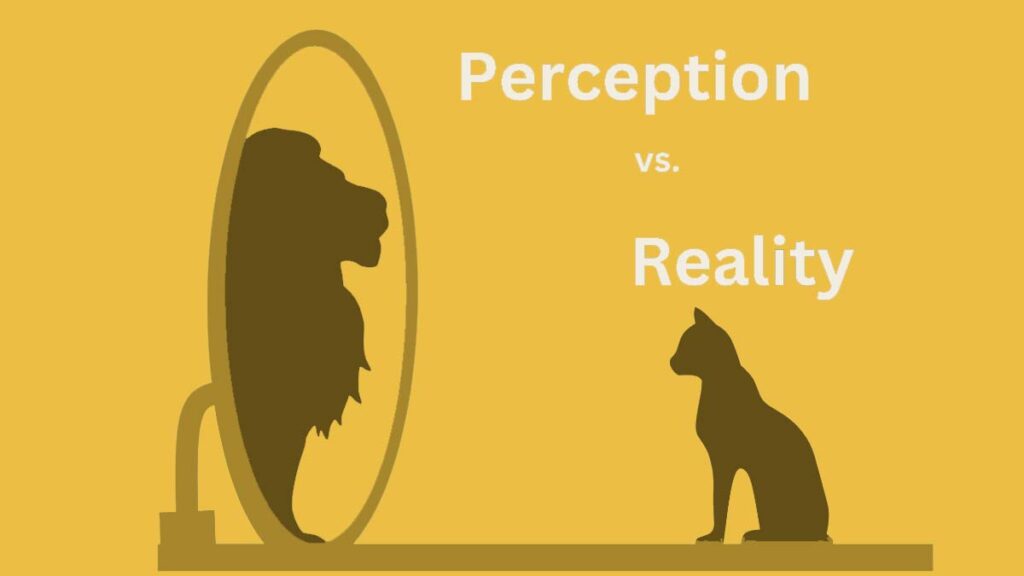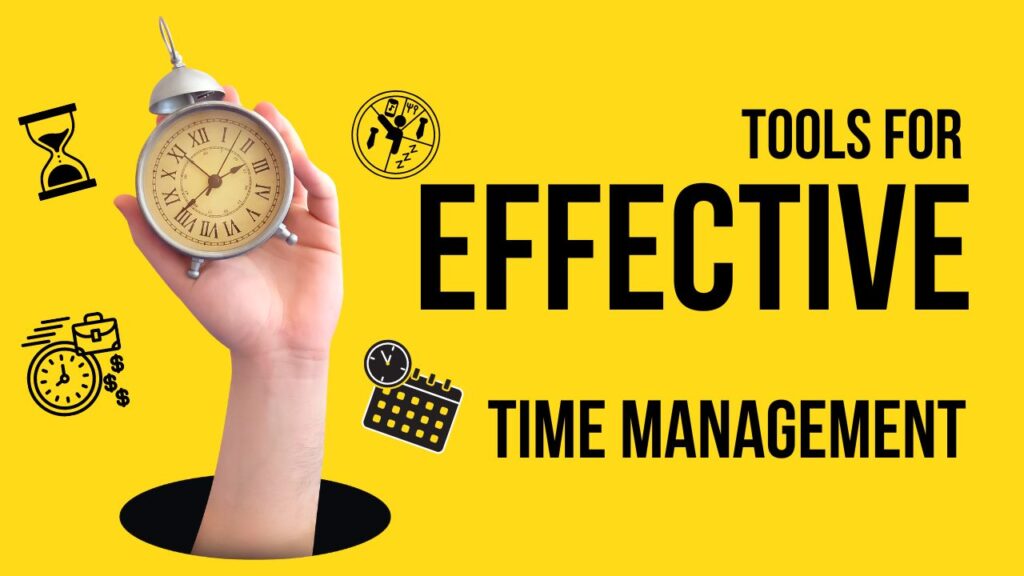Life is a ticking clock; mastering time management can turn the tides in your favor. This article will guide you through understanding time, its value, and the importance of living in the present. Time management is the key to unlocking productivity and success in life.
The Pervasive Nature of Time: A Commodity Unlike Any Other

Time is an intriguing concept; it’s a resource, a commodity that governs every aspect of our lives. Yet, its nature sets it apart from any other commodity we know. Unlike material resources such as money or property, time cannot be stored, saved, or replenished. It’s perpetually fleeting; it’s perishable. Every second that ticks by is a moment lost, never to return. This is why we often refer to time as being in ‘constant flux’.
However, what truly highlights the uniqueness of time as a commodity is its universal and equitable distribution. No matter who we are – rich or poor, young or old, powerful or ordinary – we all have the same 24 hours in a day. In this sense, time is the most democratic of all resources. It doesn’t discriminate or favor; it’s equally available to all.
Additionally, time has a dual nature that’s both forgiving and unforgiving. It’s forgiving in the sense that it always presents us with a new moment, a new opportunity. Each tick of the clock is a fresh chance for us to act, make decisions, change directions, or start anew. This is why they say, “There’s always time”. Even if we’ve wasted the past or made mistakes, the next moment offers us an opportunity to do better.
On the other hand, time can also be incredibly unforgiving. While it constantly presents us with new moments, once those moments pass, they’re gone forever. This is the harsh reality of time’s impermanence. It does not allow for do-overs or rewinds. Missed opportunities, wasted moments, words left unspoken – once the moment has passed, it is irretrievable.
In this way, time as a commodity teaches us valuable lessons about life. It encourages us to seize the moment, live in the present, and value every second, because while the next moment is always on the horizon, the current moment, once gone, will never return. This is the pervasive and unique nature of time.
Living in the Present: The Key to Utilizing Time Effectively

The art of living in the present is fundamental to utilizing time effectively. The concept, often discussed in mindfulness and meditation circles, encourages individuals to focus on the ‘here and now’ rather than getting caught up in reflections of the past or anxieties about the future.
When we speak of the past, we refer to events, experiences, and moments that have already unfolded and cannot be altered or changed. While the past can be a rich source of learning and personal growth, dwelling on it excessively can be counterproductive.
Ruminating on past mistakes, missed opportunities, or ‘what could have been’ scenarios often leads to feelings of regret, guilt, or sorrow. These emotions can cloud our judgment and distract us from the present, reducing our capacity to effectively utilize the time we have at the moment.
On the other hand, the future represents possibilities, potential outcomes, and events that are yet to occur. While planning for the future and setting goals is beneficial and necessary, becoming overly preoccupied with it can lead to anxiety, worry, and fear of the unknown. Such preoccupation can prevent us from taking action in the present, paralyzing us with indecision or apprehension.
The present moment, on the contrary, is where life happens. It’s the only timeframe in which we have the power to act, make decisions, and influence outcomes. By focusing on the present, we can fully engage with our current circumstances, tasks, and relationships. We can react to events in real-time and make conscious choices that align with our goals and values.
Investing in the present doesn’t mean ignoring the past or future entirely. Instead, it involves learning from past experiences, setting future goals, and then taking action in the present to achieve those goals. Living in the present allows us to direct our energy and attention to the actions we can take right now, which is the most effective way to shape our future.
In essence, effective utilization of time lies in striking a balance. It is about learning from our past, preparing for our future, but most importantly, acting in our present. Because it is in the ‘now’ that we can make a difference, it is in the ‘now’ that we truly live.
The Trap of Living in the Past: A Time Management Perspective

From a time management perspective, living in the past can be a subtle but powerful trap that hampers our progress and diminishes our ability to engage with the present. When we get absorbed in the past, we end up spending precious time and energy ruminating on things we can no longer change, leading to stagnation and decreased productivity.
American novelist and social critic James Baldwin’s quote, “People are trapped in history, and history is trapped in them”, encapsulates the nature of this predicament. By “history”, Baldwin implies the events, experiences, successes, failures, and missed opportunities that make up our past.
When people are “trapped” in their history, it means that they are mentally stuck in their past, constantly re-living old memories and dwelling on what could or should have been. The history is “trapped in them” when past experiences significantly influence their current thoughts, feelings, and actions, often in limiting and unproductive ways.
Living in the past can manifest in different forms. Some people might fixate on past regrets, harboring guilt or disappointment over things they did or didn’t do. Others may reminisce excessively about “the good old days”, longing for past happiness or achievements. In both scenarios, the common denominator is the diversion of focus away from the present and towards a time period that no longer exists.
The danger in this form of thinking is that it can sabotage our time management efforts. When we are trapped in the past, we are less likely to be mindful of the present moment and more likely to procrastinate on current tasks. By dwelling on past events, we let our history control our present, preventing us from making the most out of the time we have at our disposal. This impedes forward movement and stalls personal growth.
Moreover, when we’re caught up in the past, we’re also more likely to make decisions based on outdated information or emotions, rather than addressing the realities of our current situation. This can lead to poor decision-making and, consequently, an inefficient use of time.
Therefore, to effectively manage our time, we need to unshackle ourselves from the trap of the past, use our history as a guide for learning and growth, and focus our efforts on maximizing the present moment. The key is to acknowledge the past, learn from it, but not allow it to dictate our present actions and future aspirations.
Moving Forward: Letting Go of the Past to Improve Your Future

Moving forward requires a conscious effort to let go of the past, which is an integral part of effectively managing time and improving one’s future. It involves shifting focus away from past experiences and towards actions that influence the present and future positively. When we let go of the past, we free up mental and emotional resources that we can then use to be more present, proactive, and productive.
To understand why letting go of the past is crucial for moving forward, consider this: every moment spent dwelling on past hurts or glories is a moment lost from the present. Whether it’s the sting of an old wound or the warmth of a past victory, these experiences are in the past and spending time on them does not contribute to our present actions or future outcomes.
Moreover, living in past memories can cloud our judgement, hinder our decision-making process, and ultimately lead to inefficient use of time.
Instead, the key to harnessing the past lies in learning from our experiences. Mistakes and failures, while often painful, provide valuable lessons that can guide our future actions.
If we treat them as learning opportunities, we can use these experiences as stepping stones towards our future goals. Similarly, past victories can serve as sources of motivation and confidence, reminding us of our capabilities and the rewards of our efforts.
However, the process of learning from the past should not involve continuous dwelling on past events. Instead, it’s about extracting the lessons, applying them in the present, and then moving forward. For instance, if a past mistake led to a missed opportunity, the goal should not be to regret the missed opportunity but to identify what led to the mistake and ensure it is not repeated in the future.
Finally, it’s important to remember that moving forward does not mean forgetting the past completely. Rather, it involves accepting the past as an unchangeable part of our journey and focusing our energy on the actions we can take in the present to shape our future.
Letting go of the past doesn’t signify its insignificance; instead, it underscores the importance of the present moment and the power we have to determine our future. By mastering this skill, we can drastically improve our time management abilities and pave the way for a more productive and fulfilling future.
The Power of Now: Realizing and Utilizing Your Present Moment

“The Power of Now,” a term popularized by spiritual teacher Eckhart Tolle, speaks volumes about the potent force of the present moment. It underlines the idea that the best time to take any action is the present moment, or “now.” This principle, when applied to time management, can significantly improve productivity and personal growth.
Understanding the power of now involves acknowledging the transient nature of time. Past moments, once they have passed, become inaccessible for any practical action, and future moments remain uncertain and intangible until they become the present. The present moment, therefore, is the only time frame we can directly influence and act upon.
When we spend our present moments ruminating about the past or worrying about the future, we’re essentially “wasting” the most potent resource we have at our disposal: the present moment. For instance, spending time regretting past actions or decisions only results in the present moment slipping away unnoticed and unutilized, turning quickly into another part of the wasted past.
Recognizing the power of now also requires awareness and conscious effort. This involves paying attention to our thoughts and actions, ensuring that we’re making the most of the current moment. If we find ourselves regretting past actions, for example, we can consciously shift our focus to the present moment and think about what we can do right now to improve our situation or move closer to our goals.
Utilizing the power of now can also lead to improved mental health and well-being. By focusing on the present moment, we can reduce anxiety caused by worrying about the future and feelings of regret or sorrow linked to the past. This approach encourages us to live fully in each moment, leading to increased enjoyment and appreciation of our day-to-day experiences.
In essence, realizing and utilizing the power of now can help us make effective use of our time, increase our productivity, and lead a more focused and fulfilled life. It’s a simple yet profound shift in perspective that emphasizes the importance of the present moment, helping us seize our “now” and utilize it for personal and professional growth.
Perception vs Reality: An Exercise in Time Management

The concept of perception versus reality can have significant implications in the realm of time management. This dichotomy comes to the forefront particularly when we assess how we spend our time.
Perception is our mental image or understanding of something, based on our interpretation of the information we have. Reality, on the other hand, is the actual state of things as they exist, independent of our interpretations or assumptions. When it comes to time management, we often perceive that we’re spending our time in a certain way, but the reality might be quite different.
This was demonstrated vividly during my tenure at an IT education center. We perceived ourselves as hard workers, putting in long hours from 9 AM to 7 PM. Our families and colleagues shared this perception, recognizing our dedication and commitment to the job.
However, this perception was challenged when the owner of the institution, a retired army captain, suggested we undertake an exercise to track our time. We were asked to note down all our activities throughout the day, along with the time spent on each task. The aim was not to record the exact time spent on each activity but to get a broad picture of how we were utilizing our work hours.
The results were startling. Despite the long hours at work, we found that we spent only about three to four hours on core tasks directly related to our official work. The rest of the time was consumed by non-productive tasks or activities not associated with our primary job role. This reality check showed us the stark difference between our perception of being busy and the reality of actual productive work.
This exercise served as an enlightening experience that highlighted the importance of measuring and managing time efficiently. It brought out the disconnect between perception and reality in our work lives and showed us the areas where we could improve. This awareness could help us transition from unconscious incompetence (not knowing we were inefficient) to conscious competence (knowing how to work efficiently), thereby improving our time management skills.
In conclusion, the exercise in time management emphasized that it’s not just about how much time we spend at work, but how effectively we use that time. The perception of being busy does not equate to productivity. It’s essential to assess the reality of our work patterns and adjust them to improve efficiency and productivity.
Measurement and Improvement: The Tools for Effective Time Management

Effective time management requires not just planning but also assessing and improving our actions. An integral part of this process is the concept of measurement and improvement, which allows us to gauge our performance and identify areas where we can enhance our productivity.
Measurement is the act of determining the size, amount, or degree of something by using a standard unit or instrument. In the context of time management, measurement refers to assessing how we are utilizing our time. It can involve keeping track of the tasks we undertake, the time spent on each task, the progress made, and the outcomes achieved.
Measurement provides us with data, which we can then analyze to understand our current performance levels. It can help us recognize how we are spending our time, identify patterns, and spot inefficiencies. By revealing the gaps between our planned activities and actual performance, measurement allows us to understand where we are falling short and where improvement is necessary.
Improvement, on the other hand, involves taking steps to enhance our performance based on the insights gained from measurement. For instance, if measurement reveals that we are spending too much time on unproductive tasks, we can strive to limit these activities and focus more on tasks that contribute to our goals.
The process of improvement requires us to set benchmarks or standards against which we can compare our performance. Benchmarks provide a clear picture of what we should be aiming for. They can be defined based on our goals, industry standards, or best practices.
Additionally, devising checks and balances is essential to ensure that we are staying on track and adhering to our plans. These can be in the form of regular reviews, reminders, or accountability mechanisms.
Finally, the journey of mastering time management also involves being aware of our incompetencies. Recognizing our weaknesses is the first step towards improvement. Once we identify our areas of incompetency, we can take necessary actions to develop these areas and transition from unconscious incompetence (not knowing that we are not skilled) to conscious competence (knowing that we are skilled).
In conclusion, the tools of measurement and improvement are indispensable for effective time management. They provide a structured approach to managing time, allowing us to optimize our productivity and make the most of every moment.
Identifying Time Wasters and Setting Realistic Benchmarks

Effective time management revolves around smart decision-making and well-informed choices. An integral part of this process involves identifying time wasters and setting realistic benchmarks. Doing so not only streamlines your activities but also enhances productivity.
Time wasters are activities that consume significant amounts of time and yet do not contribute substantially towards your goals. These can vary from person to person. For some, time wasters might be excessive meetings or emails, while for others, it might be interruptions or distractions such as excessive use of social media. The key to managing time effectively is being aware of these time wasters and taking deliberate steps to mitigate their impact.
Social media, for instance, can be a significant time waster. Platforms like WhatsApp, Twitter, Instagram, and Facebook can easily consume hours of your day without you even realizing it. While these platforms can be valuable for networking and staying informed, excessive use can lead to unproductive hours. To manage this, one could set specific time slots for using social media or limit their usage through app restrictions.
Alongside identifying and controlling time wasters, setting realistic benchmarks plays a crucial role in time management. Benchmarks are targets or standards that guide your activities and provide a measure to gauge your progress. Setting unrealistic benchmarks can lead to frustration and decreased productivity. It is essential to have a clear understanding of your capabilities and limits while setting these benchmarks.
For example, if you’re planning your tasks for the day, avoid overloading your schedule with too many activities. Consider the time each task requires and allow some buffer for unforeseen circumstances. Similarly, understand that certain tasks such as making calls or sending emails might not take long, but without discipline, one might end up spending more time than necessary on them.
Remember, effective time management is not about cramming as many tasks as possible into your day. It’s about maximizing productivity by focusing on high-value tasks, minimizing time wasters, and setting achievable, realistic benchmarks. Through a disciplined approach and a keen awareness of your activities, you can enhance your time management skills significantly.
Conclusion: Mastering Your Own Time and Designing a Fulfilling and Productive Life

Taking control of your own time and creating a fulfilling, productive life is ultimately a personalized process, molded by your unique circumstances, goals, and experiences. As the saying goes, “We have all the time in the world,” but the critical aspect lies in how we choose to utilize this time. This phrase doesn’t mean time is infinite, but it emphasizes that we have the potential to use our time in a way that is most meaningful and beneficial to us.
Firstly, being present and fully engaged in each moment is paramount. Time spent reminiscing about the past or anxiously contemplating the future is time lost. Focus on the present moment, as that is the only time where we can influence our lives directly. When you live in the present, each minute becomes an opportunity to work towards your goals.
Next, effective time management is crucial in shaping a fulfilling life. It involves setting realistic goals, prioritizing tasks, eliminating time wasters, and maintaining a healthy work-life balance. Time management isn’t about squeezing as many tasks as possible into your day; it’s about ensuring that you are spending your time on the things that matter most to you.
Furthermore, it’s essential to design your own methods and strategies for handling time. Everyone has different responsibilities, energy levels, and work styles. What works for one person may not work for another. Experiment with different strategies, from various time management techniques like the Pomodoro Technique or Time Blocking to productivity tools and apps, and find what suits you best.
Ultimately, it’s about finding a balance between productivity and personal fulfillment. Taking time for self-care, leisure activities, and relationships is just as important as work and goal-oriented tasks.
In essence, mastering your own time involves making conscious choices about how you spend your time, creating an organized and goal-oriented structure to your day, and ensuring that you also reserve time for relaxation and personal growth. With these strategies, you can design a life that is not just productive, but also deeply fulfilling and balanced.

